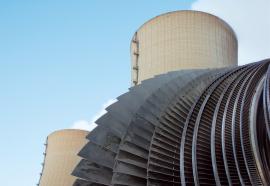Bechtel and Westinghouse Establish Alliance to Pursue Nuclear Decommissioning Work
Submitted by aburr on Fri, 2015-01-09 13:47Bechtel partnered with Westinghouse Electric to provide decontamination and decommissioning services for nuclear power plants throughout the United States. The alliance will provide a full range of services: pre-shutdown planning, licensing, project development and management, dismantling, demolition, waste handling, and site closeout--with a central focus on the safe and efficient handling of radioactive materials. Bechtel has performed services on 88 percent of the U.S. nuclear power fleet.









